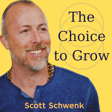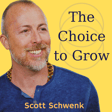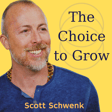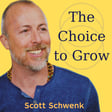
Alex Olshonsky on Outgrowing Addiction Into Profound Regeneration
What if your burnout was never a personal failure—but a signal from a deeper intelligence calling you back into connection? In this provocative and wide-ranging conversation, Scott Schwenk welcomes Alex Olshonsky—founder of Deep Fix and former tech executive—for a raw exploration of nervous system healing, societal collapse, and the courage to grow through disintegration. They explore the soul costs of extractive work, the slow medicine of reconnection, and the power of embodied presence in a culture built on speed. A vital conversation for anyone feeling overwhelmed, disillusioned, or on the edge of a personal or collective breakthrough.
Alex Olshonsky - Tech Refugee, Hakomi Practitioner, Writer
Alex Olshonsky is a somatic therapist, coach, and writer working at the intersection of deep healing, integrated leadership, and spiritual freedom.
He’s the co-founder of Natura Care, a non-profit addiction program harnessing psychedelics, and the founder of Sons of Now, a men’s group for the metamodern man. He also writes Deep Fix, a popular Substack newsletter, and his essays have appeared in a wide range of publications.
A dozen years ago, while working in Silicon Valley, Alex was gripped by a polysubstance addiction that nearly killed him. That crisis became a turning point, plunging him into psychology, the healing arts, and the dharma. Today, he helps others navigate their own transformation with precision, compassion, and deep respect for their innate intelligence.
For over a decade, Alex has trained in contemplative, therapeutic, entheogenic, and awakening-based traditions. He’s a Certified Hakomi Practitioner whose coaching helps people recognize how unconscious patterns shape their experience—and open to the freedom and vitality that have always been waiting within. His work also draws on Internal Family Systems, Motivational Interviewing, Integral Theory, and yogic embodiment. Through his writing, teaching, and entrepreneurial work, he has helped many people reclaim their lives from numbing, distraction, and self-avoidance.
Scott Schwenk - Master Coach, Spiritual Teacher, Culture Architect
Scott’s teachings, courses and private mentoring guide leaders, seekers and creatives to explore their deepest selves in service of thriving on all levels of being, both individually and relationally.
Host and creator of the podcast The Choice To Grow, Scott is known for his hugely popular courses and workshops with OneCommune.com, Younity.com, Wanderlust Festivals, and Unplug Meditation, Scott has been catalyzing the inner evolution of others for decades: helping them to grow, transform obstacles into opportunities, and find Love within.
Apprenticeships in leadership development, meditation and philosophy training, shadow work/shadow resolution and spiritual awakening are all part of Scott’s development into the thought-leader that he is today. He continues to refine his offerings studying and practicing with key innovators at the leading edges of human development.
Scott’s teachings support the entire person to not only progressively recognize, stabilize and embody our inextricable oneness with the source of creation (Waking Up), but also to resolve the wounds of the past (Cleaning Up), continually expand our capacities for wider and more inclusive perspectives on any moment (Growing Up) and creatively and joyfully participate and collaborate with all of life as a loving thriving human being (Showing Up).
You can receive a free guided meditation and explore Scott’s courses, workshops, retreats, training and master coaching at https://scottschwenk.com and can find him on Instagram @thescottschwenk.



